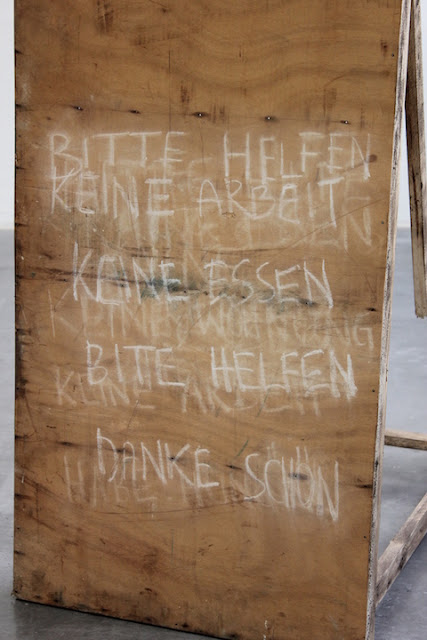“Exposition Internationale du Surréalisme”, Galérie Beaux-Arts, Georges Wildenstein. Paris, 1938
Μια σειρά από πρόσφατες επιμελητικές προτάσεις φαίνεται ότι αμφισβητούν την παραδοσιακή σχέση της μουσειολογίας με το ερευνητικό της αντικείμενο. Αυτές οι επιμέλειες τείνουν να απαρνούνται ένα συγκροτημένο πεδίο και εγείρουν ζητήματα αμφισβήτησης ενός καθολικού ερμηνευτικού μοντέλου. Ωστόσο, στο πέρασμα από τη συμβατή στη «νέα μουσειολογία», οι επιμελητές εξακολουθούν να αναζητούν πειστικές θεωρήσεις του αντικειμένου τους. Θα μπορούσε κάποιος να ισχυρισθεί ότι υπάρχει μια δέσμευση επιστημονικότητας ή και ψευτοεπιστημονικότητας, με την έννοια της συμβατικής επανάληψης της πληροφορίας σε ένα αναμενόμενο πλαίσιο αναφορών που ακολουθούν τις «μόδες» της εποχής;
Αν το μουσείο σήμερα αξιολογείται ως ένας χώρος συστηματικής έρευνας, εκπαίδευσης και πλήρους τεκμηρίωσης, ενώ παράλληλα η κυρίαρχη τάση της επιμέλειας ακολουθεί το πρότυπο αυτό ακόμη και εκτός του αυστηρά οριοθετημένου πεδίου του μουσείου, εκείνο που προκύπτει είναι ότι κάποιοι επιμελητές κουράζονται από το φαινόμενο της υπέρχρησης της εκπαιδευτικής διάστασης του αντικειμένου τους, και ανάμεσα σε άλλες επιλογές αναζητούν στα εγχειρίδια της πρωτοπορίας προτάσεις που αντιπαρατίθενται στο «εγκυκλοπαιδικό» βάρος του διαφωτισμού.
Ένα εύλογο ερώτημα, που θέτει ζητήματα ηθικής της διαχείρισης του εκθεσιακού αντικειμένου, είναι για το εάν ένα συμβατικό κατά τα άλλα έργο μπορεί να εκτεθεί μ' ένα αιρετικό επιμελητικό σχεδιασμό, αποκτώντας μια διάσταση που να εξυπηρετεί τις ανάγκες των επιμελητών, πέρα από τις δικές του προθέσεις. Ωστόσο, είναι ευνόητο ότι αυτό συμβαίνει συχνά και δεν είναι απαραίτητα κακό ως «τέχνασμα», στο βαθμό που το έργο ανοίγεται σε διαφορετικές αναγνώσεις, που αναβαθμίζουν την υπόστασή του με αφηγήσεις που μπορεί να ήταν συμπληρωματικές ή χαμένες στο υποσυνείδητο της εικαστικής γραφής.
Διαβάστε περισσότερα
http://avgi-anagnoseis.blogspot.gr/2015/07/blog-post_1.html
ΑΝΑΓΝΩΣΕΙΣ: Το εκθεσιακό πρότυπο του σουρεαλισμού στη σημερινή επιμελητική πρακτική : Αμετρία, επιμέλεια έκθεσης: Nicoletta De Rosa, Alessandro Pasini, Tomaso Piantini, Πολύνα Κοσμαδάκη, Γιώργος Τζιρτζιλάκης, Μουσείο Μπενάκη
κείμενο : Κωστής Βελώνης







